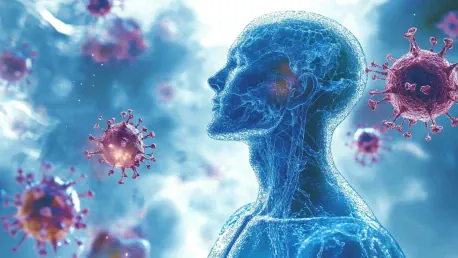The recent collaboration between biotech creation engines Two River and Third Rock Ventures has led to the formation of TRC 2004, which has licensed a bispecific T-cell engager (BiTE) from Genor Biopharma. TRC 2004 has acquired the ex-China rights to the CD20/CD3-targeting BiTE, known as GB261, which has been developed by Genor. This deal includes an upfront payment to Genor Biopharma in the double-digit millions, equity in TRC 2004, and potential milestones that could total up to $443 million, plus tiered royalties. The significance of this transaction extends beyond financial aspects, as it lays the groundwork for potentially groundbreaking advances in the treatment of autoimmune diseases, leveraging the power of biologics.
GB261 has already demonstrated promise in early clinical trials, having completed a Phase I/II study focusing on B-cell non-Hodgkin lymphoma. The study results revealed a favorable safety and efficacy profile, notably showing a significant reduction in cytokine release compared to other BiTEs—a crucial safety concern. This makes GB261 a promising candidate for B-cell depletion, a cornerstone strategy in resetting pathological autoimmunity. B-cell depletion has long been a targeted approach in combating autoimmune diseases, and GB261’s profile suggests it could be a key player in this therapeutic area. This reflects an innovation that links oncology advancements with new methodologies for managing autoimmune conditions.
Industry Trends in Biologics for Autoimmune Diseases
Two River and Third Rock Ventures have teamed up to form TRC 2004, securing a license for a bispecific T-cell engager (BiTE) from Genor Biopharma. TRC 2004 now holds the ex-China rights to Genor’s CD20/CD3-targeting BiTE, GB261. The arrangement involves an upfront payment to Genor in the double-digit millions, equity in TRC 2004, and potential milestones up to $443 million, plus tiered royalties. Beyond the financials, this partnership is poised to drive significant advancements in autoimmune disease treatments through biologics.
GB261 has shown promise in early clinical trials, having successfully completed a Phase I/II study on B-cell non-Hodgkin lymphoma. The results were positive, indicating both safety and efficacy, and notably showed a significant reduction in cytokine release—a major safety concern for other BiTEs. This makes GB261 an attractive candidate for B-cell depletion, a fundamental approach in treating autoimmune diseases. B-cell depletion has long been a key strategy in addressing autoimmune conditions, and GB261’s profile suggests it could play a crucial role in this domain. This highlights a significant innovation linking oncological advances to new autoimmune disease management methods.









